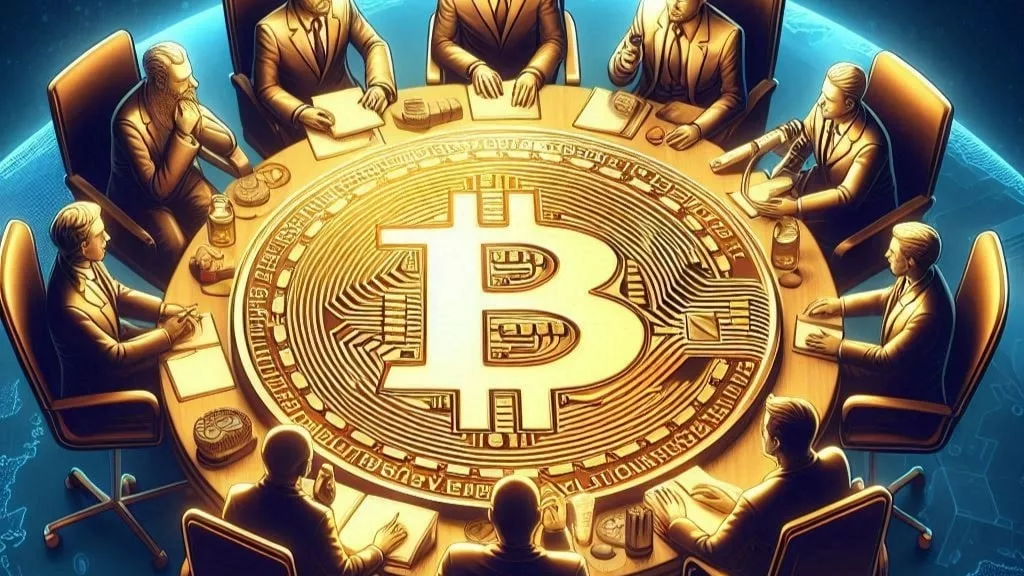
The idea of establishing a national Bitcoin reserve in the United States has recently gained traction following Donald Trump’s victory in the 2024 presidential election. While this bold proposal has ignite significant interest in the cryptocurrency and financial communities, experts are divided over the feasibility and potential impacts of such an initiative.
A national Bitcoin reserve, proposed to hold a significant portion of the U.S. reserves in Bitcoin, could represent a monumental shift in how the U.S. views and handles cryptocurrency. However, there are significant challenges that would need to be addressed, ranging from political and regulatory barriers to the broader economic implications.
The debate surrounding the proposed Bitcoin reserve has drawn attention from both supporters and skeptics within the financial world.
Michael Novogratz, CEO of Galaxy Digital, expressed doubts about the likelihood of the proposal succeeding. “I think the probability of this is low,” he stated, citing the difficulty of gaining sufficient political support, particularly with the current Republican majority in the Senate. According to Novogratz, this political landscape could create a major roadblock for the reserve’s implementation.
Dr. Arash Aloosh, a finance and fintech professor at NEOMA Business School, acknowledged the groundbreaking nature of the proposal but also emphasized its practical challenges. Speaking to the press, Aloosh remarked, “If the U.S. government creates such a reserve, it would officially endorse Bitcoin.” He noted, however, that this would contradict the government’s traditionally cautious stance toward cryptocurrencies, adding that such a significant policy shift would face considerable opposition.
The creation of a national Bitcoin reserve brings both opportunities and challenges that experts are grappling with. On the one hand, some argue that it could further legitimize Bitcoin as a store of value, much like gold. By securing Bitcoin as part of the U.S. national reserves, it could solidify the digital asset’s role in the global financial system. However, there are significant hurdles to overcome before such a move becomes a reality.
A major challenge lies in the comprehensive regulations required to make Bitcoin a recognized national asset. Currently, Bitcoin is not officially considered legal tender in the U.S., and its use is still subject to regulatory uncertainty. Moreover, the financial implications of such a move are vast, especially given the U.S.’s $1.8 trillion budget deficit. Some experts argue that introducing a Bitcoin reserve could deepen the national debt, especially if it is not carefully planned and executed.
One of the more controversial aspects of the proposal is the idea that Trump could create the reserve without needing congressional approval. While some political supporters believe the president has the executive powers to do so, this remains a contentious issue. Questions surrounding the scope of executive powers and the constitutional challenges such a decision might face add further uncertainty to the proposal.
Despite these challenges, some supporters believe that a national Bitcoin reserve could significantly strengthen the U.S. financial system. By diversifying national assets and embracing the potential of cryptocurrency, they argue that the U.S. could better position itself in an increasingly digital global economy.
The potential creation of a national Bitcoin reserve has far-reaching implications for the broader cryptocurrency market. Experts agree that the proposal would likely send shockwaves through the crypto space, boosting Bitcoin’s legitimacy and potentially leading to an increase in institutional adoption.
However, there are also concerns about the volatility and uncertainty that come with such a move. A Bitcoin reserve could drastically alter the dynamics of the crypto market, potentially leading to even more volatility as the U.S. government enters the market as a major player. Many also fear that such a move could be seen as a signal for increased government control over cryptocurrency markets, which could stifle innovation and drive some investors away.
The creation of a Bitcoin reserve would also have a significant impact on other cryptocurrencies. As Bitcoin continues to solidify its position as a primary digital asset, other projects might face challenges in maintaining their relevance and value. However, it is also possible that the broader crypto market could benefit from increased attention and investment, especially if the government takes steps to regulate and support the sector more broadly.
Despite the potential benefits, the political and regulatory barriers surrounding the proposal are substantial. The U.S. government has long been cautious about embracing cryptocurrencies, with regulatory bodies such as the Securities and Exchange Commission (SEC) and the Commodity Futures Trading Commission (CFTC) closely monitoring the space. Any move to create a national Bitcoin reserve would require comprehensive legislation and regulatory reform to ensure the security and stability of such a system.
Furthermore, there is the question of international reactions. The creation of a Bitcoin reserve could raise tensions with other countries, especially those with significant economic influence like China and Russia, who might view the U.S. embracing cryptocurrency as a threat to their own financial systems. Such a geopolitical shift would require careful diplomacy and could potentially lead to economic consequences on the global stage.
While the idea of a national Bitcoin reserve in the U.S. is undeniably provocative, it faces numerous challenges that make its implementation uncertain. From political resistance and regulatory hurdles to financial concerns, the road to creating such a reserve will be a long and complicated one.
Experts agree that, while the proposal has the potential to reshape the global financial landscape and boost the legitimacy of Bitcoin, the obstacles standing in the way are formidable. As discussions continue, the crypto market and U.S. government will likely remain at the center of an ongoing debate about the future role of Bitcoin in the global economy.
Get the latest Crypto & Blockchain News in your inbox.